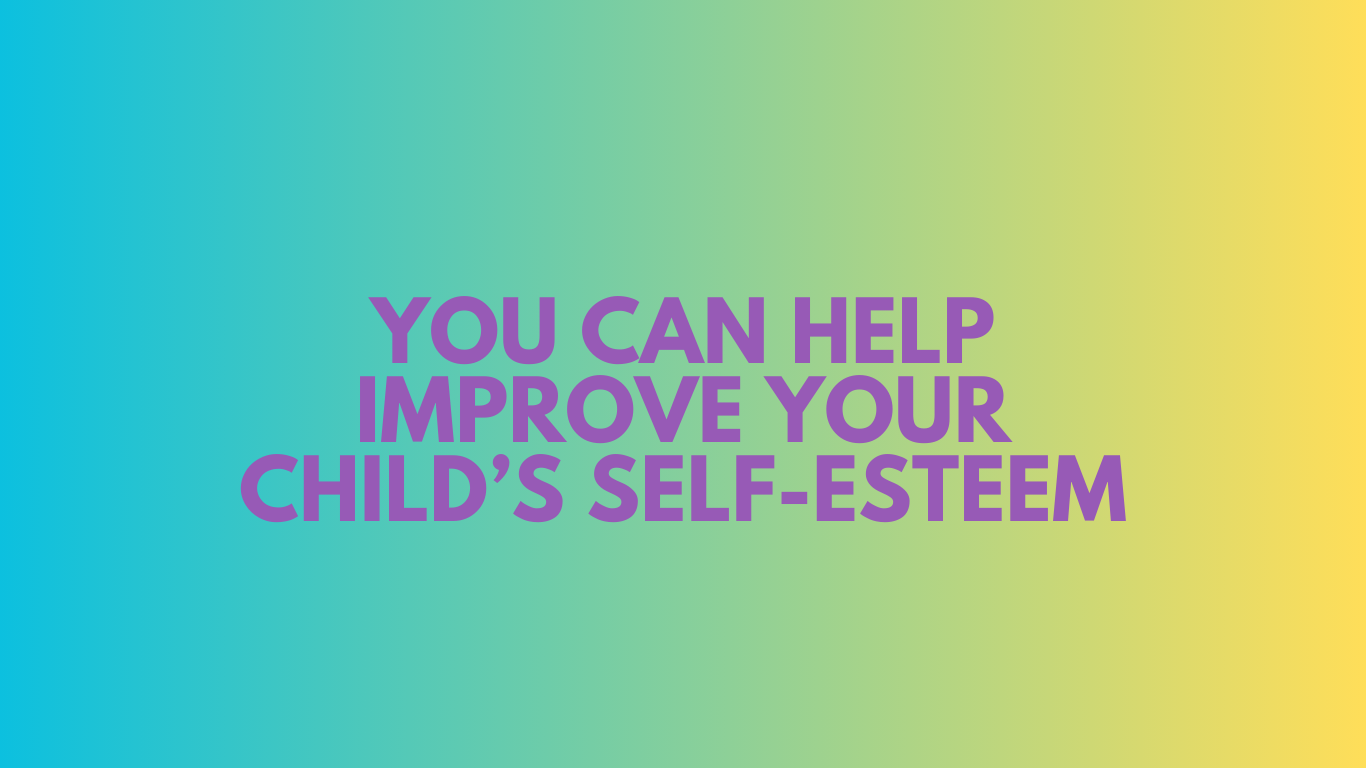You Can Help Improve Your Child’s Self-Esteem
Your Kid’s Self Esteem:
How you can Help?
A big concern of a lot of parents I talk to is their child’s self-esteem. I don’t have to tell you, but your child has a lot on their plate. School is challenging. Peer relationships are rocky, confusing, and conflicted. Children are involved in extra-curricular activities so they have longer hours and greater expectations. This can cause your child stress because he or she wants to do well. This can negatively impact your child’s self-esteem.
However you play a very large part in helping your child have a healthy self-esteem. Your relationship with your child and how you communicate with your child will impact how your child feels about self.
Your child wants to please you and please others. Your child has higher expectations to succeed. This extra stress can cause anxiety, perfectionism, and decreased frustration tolerance. Even children that are struggling with mood, school, or behavior want to make you happy and proud. In the business of life I think a lot of times we expect children to be more mature and responsible than they are prepared to be. I see too many children stressed, anxious, overwhelmed, and doubting their skills and self.
You can help your child. You can help your child see his or her worth. You can help your child decrease stress and improve self-efficacy. Here are 4 things you can do to help your child improve self-esteem.
Your actions and how you express your emotions can help your child develop a healthy self-concept.
· Listen to your child. Do not interrupt. Do not judge. When listening to your child just be quiet and hear what they are telling you. Of course you have things you want to say. You may want to offer guidance, direction, and instruction. But wait. Let your child tell you what is on their mind. Ask questions to clarify what you hear. Say, “what I hear you saying is….” They will tell you if you are right or wrong. If you want clarification, ask. If you want to know more, ask them to tell you more. Just simply listen.
· Validate your child’s feelings. As you listen to your child identify the feelings you see or hear them expressing. Perhaps they do not express any emotion? Point out how it makes you feel. Say, “when I hear you say that I feel…” Or say, “it looks like you feel….about that”.
· Model for you children. Your children are watching everything that you do. EVERYTHING! You are your child’s model. They will manage and express emotions the same way you do. Do you yell and explode when you get angry? Then your child may do the same? Do you get quiet and isolate when overwhelmed? Then your child will most likely do the same thing.
· Love and honor yourself. Remember your child is listening and watching everything that you do. If you criticize and judge yourself, your child will do the same. If you honor and respect your body and your abilities you child will learn to do that to.
What do you want your child to think and feel about self? Teach them through your own self-love. Acknowledge your strengths and help your kiddo see their strengths. Encourage self-love by making self-affirming statements about yourself and your body.
Honor and reward the positive things you do and your children do. Of course everyone will make mistakes and there are consequences for mistakes. But focusing on what you do right and what your child does right will help foster a healthy self-esteem in you and your child.


